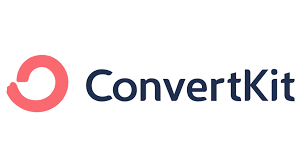Welcome to the digital marketing battleground of 2024, where the quest for the perfect email marketing tool feels like a never-ending saga. With a plethora of options, two names often stand out – ConvertKit and BenchmarkONE. But which one should you entrust with the critical task of connecting with your audience? As you journey through this guide, you’ll discover the nuances that make each tool unique and which one might be the ideal choice for your specific needs.
| ConvertKit | BenchmarkONE |
|---|---|
 |  |
| G2 Score – 4.4 out of 5 stars | G2 Score – 4.5 out of 5 stars |
| TrustRadius Score – 8.8 out of 10 | TrustRadius Score – 3.3 out of 10 |
Ease of Use: Navigating the User Interface
ConvertKit: Simplified for Creators
ConvertKit has been designed with a clear focus on ease of use, particularly catering to the needs of creators and entrepreneurs who may not possess extensive technical skills. The platform’s user interface stands out for its simplicity and intuitiveness. As soon as you log in, you’re welcomed by a dashboard that is uncluttered and straightforward, guiding you gently through the process of setting up your email campaigns.
Setting Up Your First Campaign
For someone launching their first email campaign, ConvertKit makes the experience less daunting. The process is incredibly user-friendly. You are guided step-by-step, from choosing your audience segment to crafting your email, making the journey from concept to execution seamless. The platform’s visual automation builder deserves a special mention. This feature, with its drag-and-drop functionality, allows you to create complex email sequences as if you were simply drawing them out on a canvas. This level of ease in setting up sophisticated campaigns is a significant plus for users who want to focus more on content and less on grappling with technical complexities.
Customization and Flexibility
ConvertKit doesn’t just excel in simplicity; it also offers ample room for customization. The platform comes equipped with a variety of templates that are not only aesthetically pleasing but also cater to a wide range of niches. Whether you are a blogger, a small business owner, or a creative artist, you’ll find templates that resonate with your unique brand voice. This customization extends to the way you can manage and segment your audience, allowing for highly targeted and personalized email campaigns.
BenchmarkONE: The Power of Integration
BenchmarkONE takes a slightly different approach to user interface design, targeting small to medium-sized businesses that are looking for a powerful tool which integrates seamlessly with their existing technology stack.
Seamless Integration with CRM
The standout feature of BenchmarkONE is its CRM integration. This feature is particularly appealing to businesses that need a comprehensive view of their customer interactions. With BenchmarkONE, every aspect of customer engagement, from email opens to follow-up actions in the sales process, is captured and accessible within a single platform. This integration is not just about convenience; it’s about providing a unified and holistic approach to customer relationship management.
Advanced Automation Capabilities
While ConvertKit focuses on simplicity in automation, BenchmarkONE goes a notch higher, offering more sophisticated options. This is especially beneficial for businesses with more complex sales processes or those looking to scale up their operations. BenchmarkONE enables you to create highly customized email sequences based on a variety of customer behaviors, such as purchase history or engagement level, thus offering a deeply personalized experience to each recipient.
Verdict
In the realm of user interface and ease of use, ConvertKit and BenchmarkONE cater to different user bases with their unique approaches. ConvertKit is ideal for individuals and small businesses focusing on content creation, offering an intuitive, straightforward interface with enough customization to make it powerful yet not overwhelming. BenchmarkONE, with its focus on CRM integration and advanced automation capabilities, is more suitable for businesses requiring a comprehensive tool that can handle complex email marketing tasks with ease.
Deliverability: Ensuring Your Message Hits the Inbox
ConvertKit: Focused on Creator Deliverability
In the world of email marketing, the journey of an email from sender to inbox is fraught with challenges, making deliverability a crucial aspect to consider. ConvertKit understands this challenge particularly in the context of creators and small businesses. The platform is designed to ensure a high deliverability rate, which is essential to ensure that your crafted messages don’t end up in the dreaded spam folder or get lost in the digital ether.
Prioritizing Sender Reputation
A significant aspect of ConvertKit’s approach to deliverability is its focus on maintaining a strong sender reputation. This is achieved through a combination of features and guidelines that help users adhere to best practices in email marketing. ConvertKit provides monitoring tools and proactive tips to ensure that your emails consistently meet the standards that ISPs (Internet Service Providers) set for inbox placement. This attention to maintaining a good sender reputation is critical, as it directly influences whether your emails are seen by your audience or not.
Personalization and Engagement
ConvertKit’s deliverability strength lies not only in its technical capabilities but also in its approach to content. The platform encourages and facilitates the creation of personalized and engaging emails. Personalization in email content has been shown to significantly reduce the likelihood of emails being marked as spam. By allowing users to tailor their messages based on subscriber behavior and preferences, ConvertKit helps in enhancing engagement, which in turn positively impacts deliverability rates.
BenchmarkONE: Deliverability with a Business Edge
While ConvertKit focuses on the deliverability needs of creators and small businesses, BenchmarkONE approaches this aspect from a more business-centric perspective, understanding the nuances and requirements of small to medium-sized businesses.
Advanced Deliverability Features
BenchmarkONE steps up the game in deliverability with its suite of advanced features. These include sophisticated tools like email throttling, which helps in managing the rate at which emails are sent, and predictive sending, which optimizes send times based on when recipients are most likely to open their emails. These advanced features are crucial in managing a key aspect of deliverability – the relationship with ISPs. By effectively managing send rates and timings, BenchmarkONE reduces the risk of its users’ emails being flagged as spam, thus improving overall deliverability rates.
Integration with CRM for Cleaner Lists
A unique advantage of BenchmarkONE in the context of deliverability is its integrated CRM functionality. This integration is particularly beneficial in maintaining clean and up-to-date mailing lists. The CRM system automatically removes unengaged contacts and flags bouncing email addresses, which are critical factors in maintaining a healthy sender reputation. This integrated approach ensures that your email lists are of high quality, which is a foundational element of good deliverability.
Verdict
In the comparison of deliverability features between ConvertKit and BenchmarkONE, we see two platforms that, while serving different audiences, both place a high emphasis on ensuring that emails reach their intended inboxes. ConvertKit offers a more personalized and creator-focused approach, prioritizing engagement and sender reputation, which is ideal for individual creators and small businesses. BenchmarkONE, with its advanced deliverability features and CRM integration, provides a robust solution for businesses that need a more sophisticated approach to manage their email marketing deliverability effectively.
Analytics and Reporting: Measuring Success
ConvertKit: Creator-Centric Analytics
In the fast-paced world of digital marketing, analytics and reporting are not just tools but lifelines for creators and marketers. ConvertKit, understanding the pulse of creators and small businesses, offers analytics that are not only powerful but also easy to comprehend and act upon.
User-Friendly Analytics Dashboard
The heart of ConvertKit’s analytics lies in its user-friendly dashboard. Designed for creators who need quick and actionable insights, this dashboard presents key metrics in a clear and concise manner. You can instantly see how your email campaigns are performing in terms of open rates, click-through rates, and subscriber growth. This immediate access to crucial data empowers users to make swift, informed decisions, an essential aspect for creators who often have to adapt and react quickly to their audience’s responses.
Focus on Audience Growth
A distinct aspect of ConvertKit’s analytics is its emphasis on audience growth and engagement, which are key metrics for any creator or small business. The platform provides detailed insights into how different types of content perform with your audience, allowing you to adjust your strategy in real time. This focus on audience engagement is not just about numbers; it’s about understanding what resonates with your audience, helping you to create more impactful and engaging content.

Related: Check out our free SEO suite

BenchmarkONE: Business-Driven Reporting
BenchmarkONE approaches analytics from a broader business perspective. It provides a comprehensive suite of reporting tools that go beyond basic email metrics, addressing the needs of small to medium-sized businesses with a focus on detailed insights.
Detailed Reporting for Informed Decisions
With BenchmarkONE, you get in-depth reports that delve into the nuances of customer behavior, sales funnel performance, and lead tracking. This level of detail is invaluable for businesses that need to understand the full impact of their email campaigns on their sales and marketing strategies. These detailed reports allow for a granular analysis of campaign performance, enabling businesses to fine-tune their approach for maximum efficiency and effectiveness.
CRM Integration for Enhanced Insights
The integration of CRM in BenchmarkONE plays a significant role in its analytics capability. This integration provides a holistic view of customer interactions, offering insights that go beyond email engagement. With this, businesses can track the journey of a customer from an email click to a sale, giving them a comprehensive understanding of how their email marketing efforts are contributing to their overall sales and business goals. This level of integrated reporting is crucial for businesses that want a complete overview of their marketing and sales funnel, enabling them to make data-driven decisions that affect the bottom line.
Verdict
When it comes to analytics and reporting, ConvertKit and BenchmarkONE cater to their respective audiences with tailored solutions. ConvertKit’s straightforward and creator-focused analytics are perfect for those who need quick, actionable insights to grow and engage their audience. On the other hand, BenchmarkONE offers a more comprehensive analytics package, suited for businesses that require detailed insights into their entire sales and marketing funnel. Both platforms recognize the critical role of data in today’s marketing landscape and provide robust tools to measure success effectively.
Pricing and Value for Money
When it comes to choosing the right email marketing tool, pricing and the value offered for that price are significant factors. Both ConvertKit and BenchmarkONE present pricing structures tailored to their target audiences, balancing features with affordability.
| ConvertKit | Free Plan: Offers basic features for up to 1,000 subscribers, including email broadcasts, landing pages, and forms. Creator Plan: Starting at $29/month for up to 1,000 subscribers, including automation and third-party integrations. The price increases with more subscribers. Creator Pro Plan: Starting at $59/month for up to 1,000 subscribers, adding advanced features like newsletter referral system, subscriber scoring, and advanced reporting. |
| BenchmarkONE | Starter Plan: Typically starts around $79/month, includes basic CRM and email marketing features, suitable for smaller businesses. Standard Plan: Priced around $139/month, this plan offers more advanced features, such as sales automation and lead scoring. Professional Plan: Starting at approximately $239/month, includes all features in the Standard plan plus additional capabilities like advanced reporting and API access. Note: The prices and features might vary based on the number of contacts and the specific needs of the business. |
ConvertKit: Affordable for Creators
ConvertKit has positioned itself as an accessible option for creators and small businesses. Its pricing strategy reflects an understanding of the budget constraints and needs of this demographic.
Transparent Pricing Model
ConvertKit’s pricing model is distinguished by its transparency and simplicity. It operates on a scale based on the number of subscribers, making it easy for users to understand and anticipate their expenses as their subscriber list grows. This clear, subscriber-based pricing is particularly appealing to smaller businesses and creators who need a predictable and scalable cost structure. It allows them to budget effectively without worrying about unexpected costs as they scale up their operations.
Free Plan for Beginners
A notable aspect of ConvertKit’s pricing is the free plan it offers. This plan is particularly beneficial for those just starting out in their email marketing journey. While it includes basic features, it’s comprehensive enough to get started with email campaigns and audience building. The availability of a free plan demonstrates ConvertKit’s commitment to supporting emerging creators and businesses, providing them with the tools they need at the outset of their journey.
BenchmarkONE: Cost-Effective for Growing Businesses
BenchmarkONE, catering to small to medium-sized businesses, offers a pricing structure that is designed to be cost-effective for businesses looking for a more robust solution.
Pricing Tied to Features and CRM Integration
The pricing of BenchmarkONE is influenced not just by the number of subscribers but also by the range of features and CRM capabilities offered. This multi-faceted pricing structure ensures that businesses pay for the comprehensive capabilities they need, including advanced email marketing features and the integrated CRM system. It’s a model that provides value for businesses seeking an all-in-one solution for their marketing and customer relationship management needs.
Customizable Plans for Diverse Needs
Recognizing that different businesses have unique requirements, BenchmarkONE offers customizable plans. This flexibility is a significant advantage, allowing businesses to tailor their package to include only the features they need. It prevents them from paying for functionalities that they might not use, making it a more cost-effective choice for businesses with specific needs or those operating within a tight budget.
Verdict
In the arena of pricing and value for money, ConvertKit and BenchmarkONE each offer appealing options for their target audiences. ConvertKit’s straightforward, subscriber-based pricing and free starter plan make it an attractive choice for individual creators and small businesses. Meanwhile, BenchmarkONE, with its feature-based pricing and customizable plans, presents a cost-effective solution for businesses that need a comprehensive tool capable of scaling with their growth. Both platforms show an understanding of the financial considerations of their users, offering pricing structures that align with the needs and capabilities of their respective markets.
Customer Support and Community
In the realm of email marketing tools, the quality of customer support and the strength of the user community can be as crucial as the features of the software itself. ConvertKit and BenchmarkONE each approach these aspects in ways that reflect their understanding of their users’ needs.
ConvertKit: Nurturing a Creator Community
ConvertKit’s approach to customer support and community building is tailored towards creators and small business owners, emphasizing accessibility, responsiveness, and communal growth.
Responsive and Helpful Support
One of the hallmarks of ConvertKit’s customer support is its responsiveness. Whether it’s through email, live chat, or their knowledge base, users can expect prompt and helpful responses to their queries. This level of support is particularly crucial for creators and small businesses that might not have the luxury of a dedicated IT or marketing department and thus rely heavily on their tool providers for assistance.
A Community of Creators
ConvertKit goes beyond traditional customer support by fostering a community of creators. Through webinars, workshops, and an active online community, users are encouraged to connect, share experiences, and learn from each other. This community aspect is not just about solving problems; it’s about building a network of support, inspiration, and collaboration. It offers a platform for users to exchange ideas, strategies, and experiences, which can be incredibly valuable for creators looking to grow their audience and enhance their marketing strategies.
BenchmarkONE: Business-Focused Support
BenchmarkONE’s approach to customer support and community is designed with the needs of small to medium-sized businesses in mind, offering comprehensive support and resources geared towards business growth.
Comprehensive Support for Diverse Needs
BenchmarkONE provides a broad range of support options, including phone, email, and in-app support, catering to the diverse needs of businesses. This comprehensive approach is crucial for addressing the complex and varied issues that businesses might encounter. The availability of phone support, in particular, is a significant advantage for businesses that require immediate assistance for more complex queries.
Resources for Business Growth
Apart from solving immediate problems, BenchmarkONE offers a wealth of resources such as detailed guides, case studies, and best practice tips. These resources are geared towards helping businesses maximize the use of email marketing and CRM for growth. By providing these resources, BenchmarkONE supports businesses not just in troubleshooting but also in strategy development, helping them to effectively leverage their marketing efforts for broader business objectives.
Conclusion
ConvertKit excels in building a supportive community for creators, offering a mix of responsive support and opportunities for learning and connection. BenchmarkONE, with its comprehensive support and business growth resources, is ideal for businesses looking for a more tailored support experience to help them navigate the complexities of email marketing and CRM integration.
Choosing between ConvertKit and BenchmarkONE in 2024 depends on your specific needs. ConvertKit is the go-to for creators and small businesses seeking simplicity, community, and effective audience engagement tools. BenchmarkONE stands out for businesses requiring a more robust solution with integrated CRM and advanced features. In the end, the best tool is the one that aligns with your goals, audience, and growth trajectory. Both ConvertKit and BenchmarkONE offer compelling features, but your choice should be guided by the unique demands of your marketing journey.
Read Next
- ConvertKit vs Klaviyo: The Best Email Marketing Tool for 2024
- ConvertKit vs Omnisend: The Best Email Marketing Tool for 2024
- ConvertKit vs Moosend: The Best Email Marketing Tool for 2024
- ConvertKit vs Mailjet: The Best Email Marketing Tool for 2024
- ConvertKit vs Benchmark Email: The Best Email Marketing Tool for 2024






















Comments are closed.